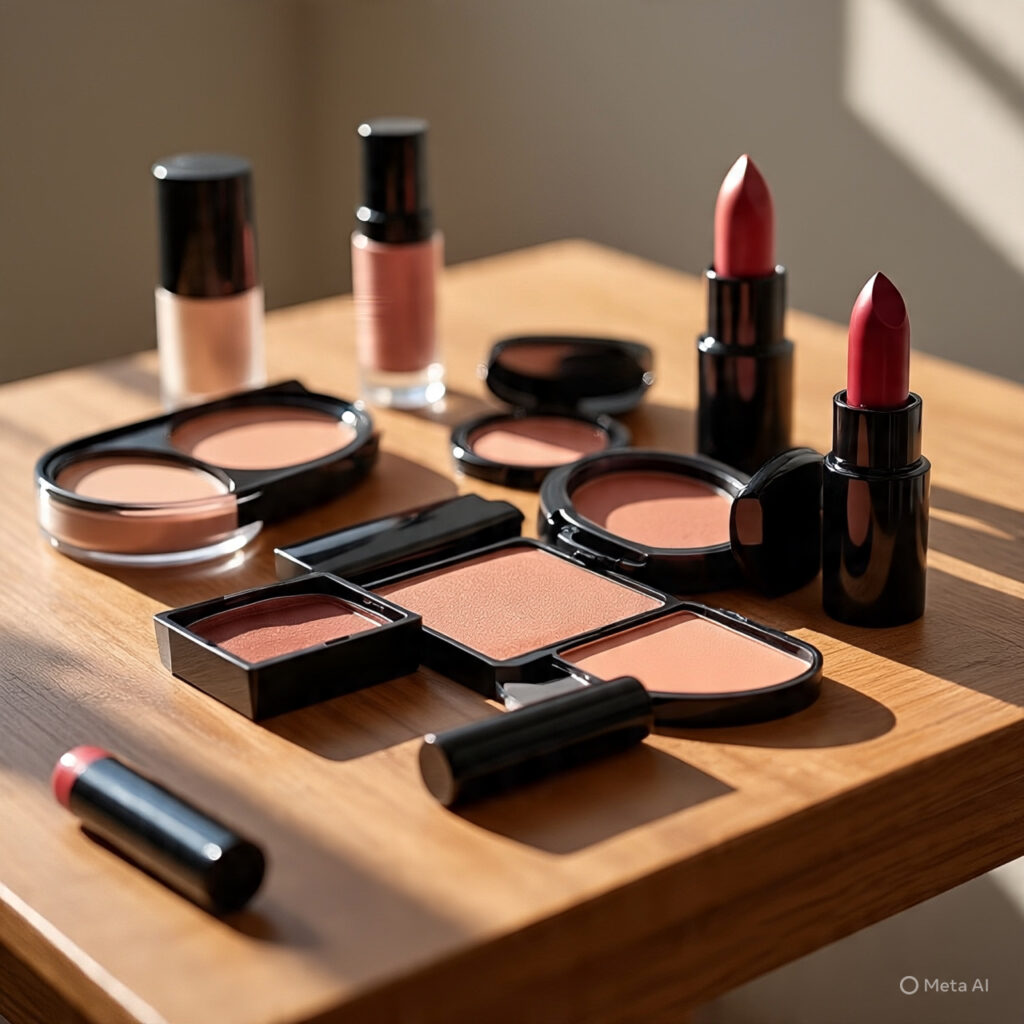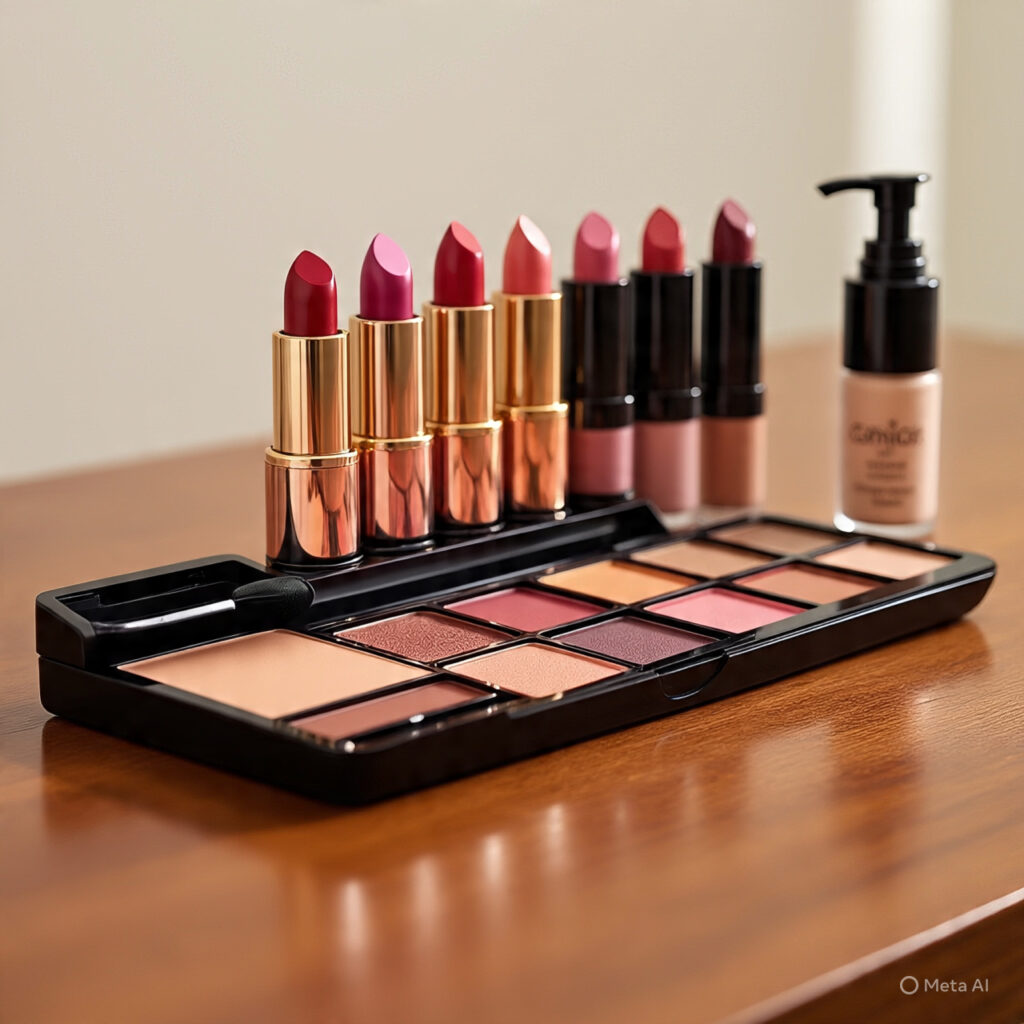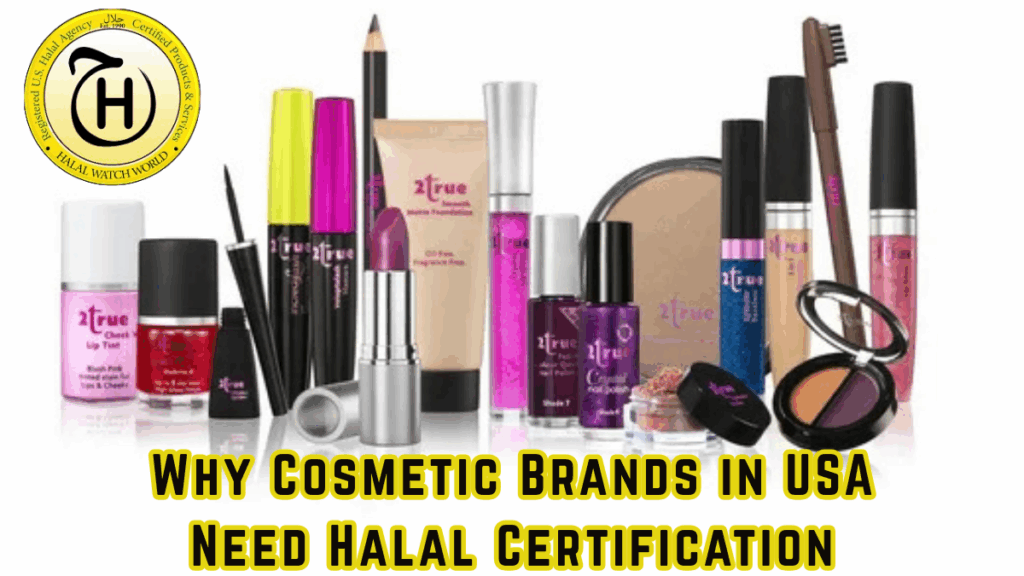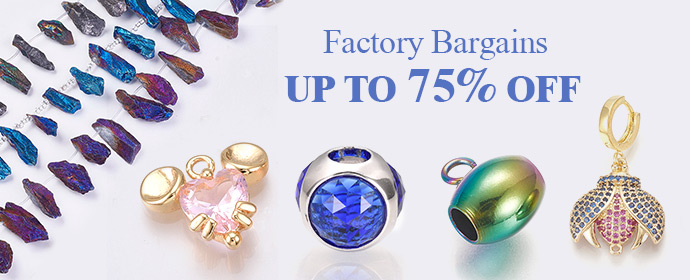Halal certification for cosmetics ensures that beauty products comply with Islamic principles, prohibiting ingredients like alcohol, pork derivatives, or non-halal animal-based components. This process verifies that products are ethically sourced, cruelty-free, and safe for Muslim consumers. It involves rigorous checks on ingredients, manufacturing processes, and supply chains to prevent cross-contamination with prohibited substances. Beyond religious compliance, it appeals to a broader audience seeking transparency and ethical standards in their beauty products.
Why Halal Certification Matters
The demand for halal cosmetics certifications is rising due to the growing Muslim population in the USA, estimated at nearly 4 million, and a global market projected to reach $113 billion by 2032. This certification allows brands to cater to Muslim consumers who prioritize products aligning with their faith. Additionally, non-Muslim consumers are increasingly drawn to halal products for their ethical and clean beauty attributes, such as cruelty-free practices and natural ingredients, boosting brand appeal across diverse demographics.

Benefits for Cosmetic Brands
Obtaining halal cosmetics certification offers multiple advantages for brands in the USA. First, it builds consumer trust by ensuring transparency and adherence to strict ethical standards. Certified products often command premium pricing, as Muslim consumers are willing to pay up to 13% more for halal-compliant items. It also opens access to global markets, particularly in Muslim-majority regions like Southeast Asia and the Middle East, where halal compliance is often a legal requirement for imports. This certification enhances brand reputation, signaling a commitment to inclusivity and quality.
Certification Process Overview
The cosmetics halal certification in USA involves several steps. Brands must submit detailed ingredient lists, including Certificates of Analysis (COA) and supplier declarations, to ensure no prohibited substances are used. Manufacturing facilities undergo audits to verify equipment sanitation, segregation of halal and non-halal production, and compliance with halal standards. A halal certifying body reviews documentation and conducts on-site inspections. Once approved, brands receive a certificate valid for 1-3 years, requiring annual audits for renewal. This thorough process ensures product integrity and consumer confidence.

Key Requirements for Compliance
To achieve cosmetics and personal care certification, brands must meet specific criteria. Ingredients must be free from pork, non-halal animal derivatives, or ethanol derived from intoxicating sources. Synthetic or plant-based alternatives are often used instead. Manufacturing processes require dedicated equipment or validated cleaning protocols to prevent cross-contamination. Supply chains must be traceable, with suppliers providing halal-compliant documentation. Packaging materials should also avoid contact with non-halal substances. These requirements ensure products remain permissible under Islamic law.
Market Trends Driving Demand
The rise of ethical consumerism is a key driver for halal certification in cosmetics. Consumers, especially Gen Z and Millennials, prioritize transparency, sustainability, and cruelty-free products. Halal certification aligns with these values, often overlapping with vegan and organic standards, appealing to a broader audience. E-commerce has further boosted accessibility, allowing brands to reach global Muslim consumers through online platforms. Social media influencers and beauty bloggers also amplify halal cosmetics, increasing visibility and demand in mainstream markets.
Challenges in Certification
Despite its benefits, obtaining halal certification poses challenges. The lack of a unified global standard creates inconsistencies, as different certifying bodies may have varying criteria. Sourcing halal-compliant ingredients can be costly, especially when replacing animal-derived or alcohol-based components. Small brands may struggle with audit costs and documentation requirements. Additionally, consumer education is needed to clarify that halal cosmetics benefit all, not just Muslim consumers, to expand market reach and dispel misconceptions.
Top Certification Bodies
Selecting a reputable top halal certification company is crucial for credibility. In the USA, several organizations offer trusted certification services, ensuring compliance with Islamic standards. These bodies conduct thorough audits, provide guidance on ingredient sourcing, and issue globally recognized certificates. Choosing an accredited certifier enhances brand trust and facilitates market access, especially for exports. Halal Watch is one such organization, known for its rigorous standards and commitment to ethical practices, helping brands navigate the certification process efficiently.
Future of Halal Cosmetics
The future of halal cosmetics in the USA is promising. Technological advancements, like blockchain for supply chain transparency, are enhancing certification processes. Brands are innovating with sustainable packaging and natural formulations to meet consumer demands. Collaborations with influencers and beauty experts are expected to further mainstream halal products. As consumer awareness grows, halal certification will become a key differentiator, positioning brands as leaders in ethical and inclusive beauty solutions.
Conclusion
Halal certification is no longer a niche requirement but a strategic move for cosmetic brands in the USA. It aligns with the growing demand for ethical, transparent, and inclusive beauty products while opening doors to lucrative global markets. By investing in halal certification, brands can build consumer trust, enhance their reputation, and tap into a rapidly expanding market. As consumer preferences evolve, adopting halal standards will be a vital step for staying competitive and relevant in the beauty industry.
Read more exciting blogs on fashonation.com
Recommend0 recommendationsPublished in Makeup, Our Fashion Passion



